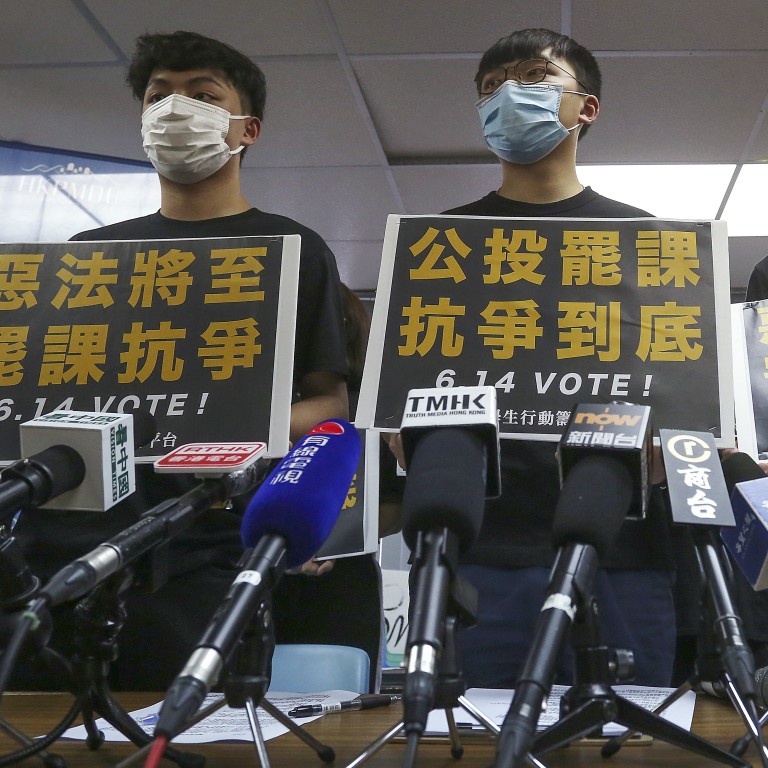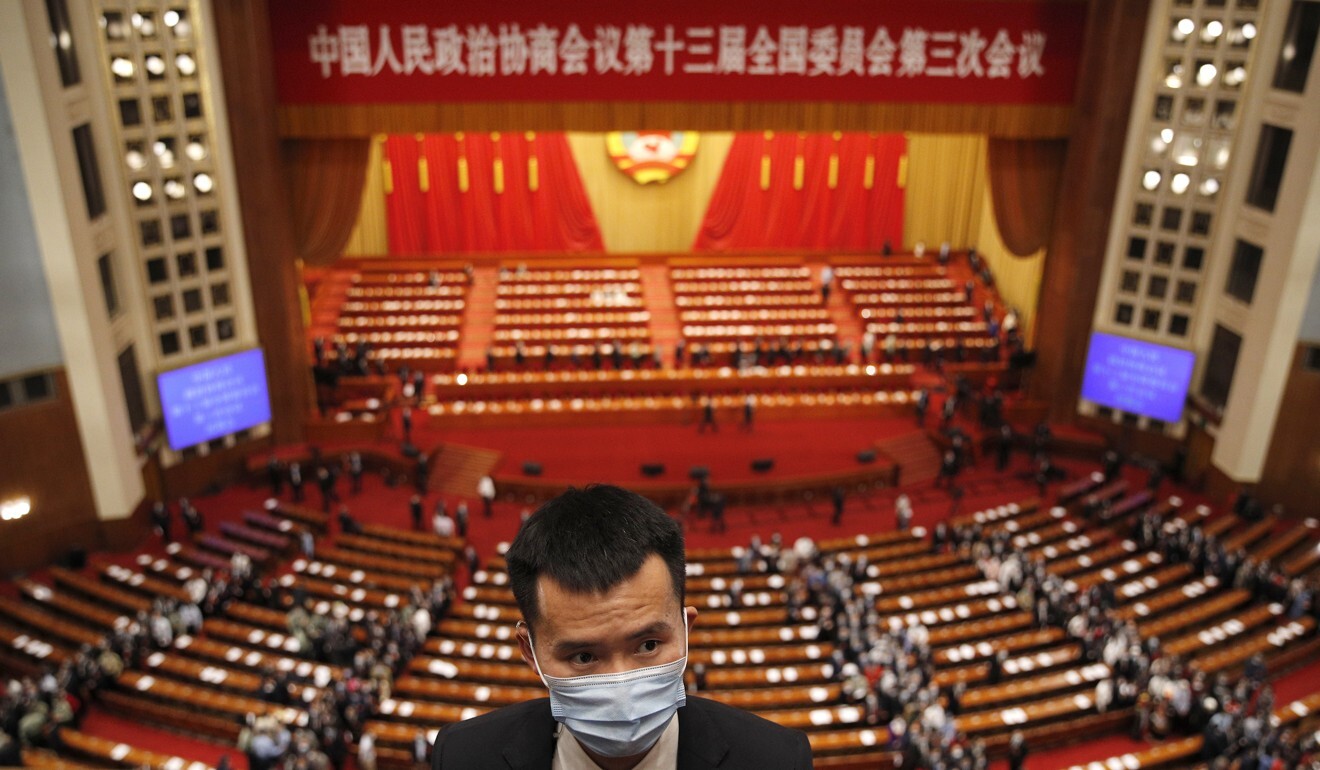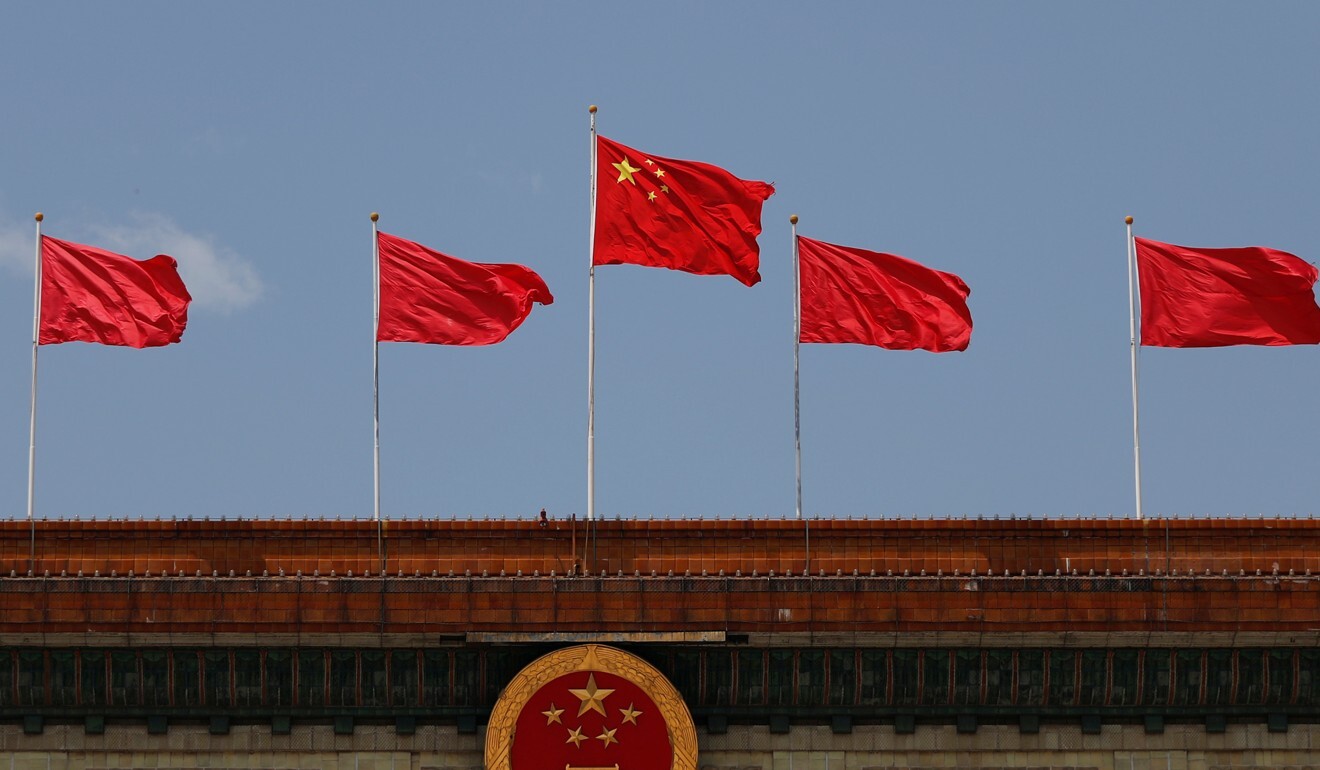
National security law: is Hong Kong heading for class boycotts and general strikes?
- Minister warns civil servants not to get involved in unofficial referendum, while another asks schools to take action against striking teachers and students
- But activists still plan to press ahead with June 20 poll on whether to carry out class boycotts along with general strikes over the legislation
Here is a rundown of how the row has developed over the past week, and what officials have said about it.
What started the ‘referendum’ and how is this related to the Hong Kong protests?
Last month, Beijing unveiled legislation outlawing acts of secession, subversion, terrorism and foreign interference in the city’s affairs. The National People’s Congress approved a resolution for its Standing Committee to draft the law, which could be done as early as this month.
On June 6, a group of labour unions, including one for civil servants, and a student group threatened to strike as a “warning shot” against the proposed law.
But while anti-government protesters have tried to put forth the narrative of a leaderless movement, the latest campaign for a strike and ‘referendum’ is spearheaded by leaders and organisations.

Hong Kong activists vow to press ahead with vote on striking over national security law
Who’s behind the campaign?
The strike is being supported by 23 pro-democracy labour unions, with more than 10,000 members spanning across 20 industries, including aviation, transport, construction, and information technology.
Ngan was demoted last week from a more senior acting position, with his monthly salary cut from about HK$50,000 to HK$30,000.
He was a key organiser of a rally last August for civil servants to show their opposition to the now-shelved extradition bill. Ngan, who suggested his demotion could be politically motivated, has demanded an explanation from the department.
The vote on class boycott was spearheaded by the Hong Kong Secondary School Students Action Platform, which was backed by political group Demosisto’s leaders Joshua Wong Chi-fung and Issac Cheng Ka-long.
What are their plans? Why was it postponed to June 20?
They originally planned to set up several booths on June 14 on Hong Kong Island and in Kowloon for people to vote.
They said they would go ahead with an industrial action if at least 70,000 people – 60,000 workers and 10,000 secondary school students – voted, and more than 60 per cent wanted a strike.
What is Hong Kong’s national security law?
Why are local and mainland officials angry about it?
On June 7, the Hong Kong government issued a strong statement, refusing to change its stance or give in to activists’ threats to launch a strike against Beijing’s plan. It condemned labour unions and student groups for planning to skip work and classes.
Secretary for the Civil Service Patrick Nip Tak-kuen also called on all civil servants to understand that they served both the city and the country as a whole. Nip warned those who organised or joined the strike would be in breach of the civil service code of conduct.
HKMAO accused youth activist Joshua Wong and others of exploiting secondary school pupils in a campaign to derail the legislation.
“According to the Civil Service Code, civil servants should be committed to the rule of law and political neutrality. Political neutrality means that civil servants shall serve the Chief Executive and the government of the day with total loyalty and to the best of their ability, no matter what their own political beliefs are,” a spokesman warned.
What does Beijing’s new national security law for Hong Kong cover, and who should worry?
What happened to the activists since then?
The Labour Department on Wednesday told Ngan and seven colleagues of the same service grade that they would be demoted – returning to their original positions with less pay from next month.
In October last year, Ngan took up a senior post on an acting basis that saw his salary increase from about HK$30,000 (US$3,900) to HK$50,000 per month.

The department explained that the changes were based on “operational needs”, but Ngan suggested the decision was political.
Young activist Isaac Cheng also said that three volunteers of the Hong Kong Secondary School Action Platform were arrested on Friday night in Causeway Bay, where crowds had gathered to mark the anniversary of the first major clashes in the city that launched the social unrest last year.
What’s next for them?
The organisers of the unofficial referendum have vowed to press ahead with their plans.
There is no law in Hong Kong stating that authorities could organise a referendum, nor is there any law saying that holding a referendum is illegal.

